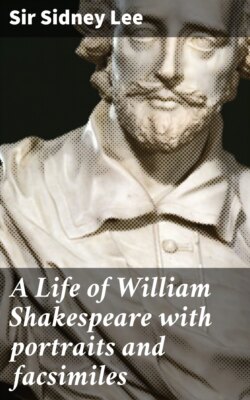Читать книгу A Life of William Shakespeare with portraits and facsimiles - Sir Sidney Lee - Страница 60
На сайте Литреса книга снята с продажи.
Lyly’s influence in comedy.
ОглавлениеTable of Contents
Lyly is best known as the author of the affected romance of ‘Euphues,’ but between 1580 and 1592 he produced eight trivial and insubstantial comedies, of which six were written in prose, one was in blank verse, and one was in rhyme. Much of the dialogue in Shakespeare’s comedies, from ‘Love’s Labour’s Lost’ to ‘Much Ado about Nothing,’ consists in thrusting and parrying fantastic conceits, puns, or antitheses. This is the style of intercourse in which most of Lyly’s characters exclusively indulge. Three-fourths of Lyly’s comedies lightly revolve about topics of classical or fairy mythology—in the very manner which Shakespeare first brought to a triumphant issue in his ‘Midsummer Night’s Dream.’ Shakespeare’s treatment of eccentric character like Don Armado in ‘Love’s Labour’s Lost’ and his boy Moth reads like a reminiscence of Lyly’s portrayal of Sir Thopas, a fat vainglorious knight, and his boy Epiton in the comedy of ‘Endymion,’ while the watchmen in the same play clearly adumbrate Shakespeare’s Dogberry and Verges. The device of masculine disguise for love-sick maidens was characteristic of Lyly’s method before Shakespeare ventured on it for the first of many times in ‘Two Gentlemen of Verona,’ and the dispersal through Lyly’s comedies of songs possessing every lyrical charm is not the least interesting of the many striking features which Shakespeare’s achievements in comedy seem to borrow from Lyly’s comparatively insignificant experiments. [62]
